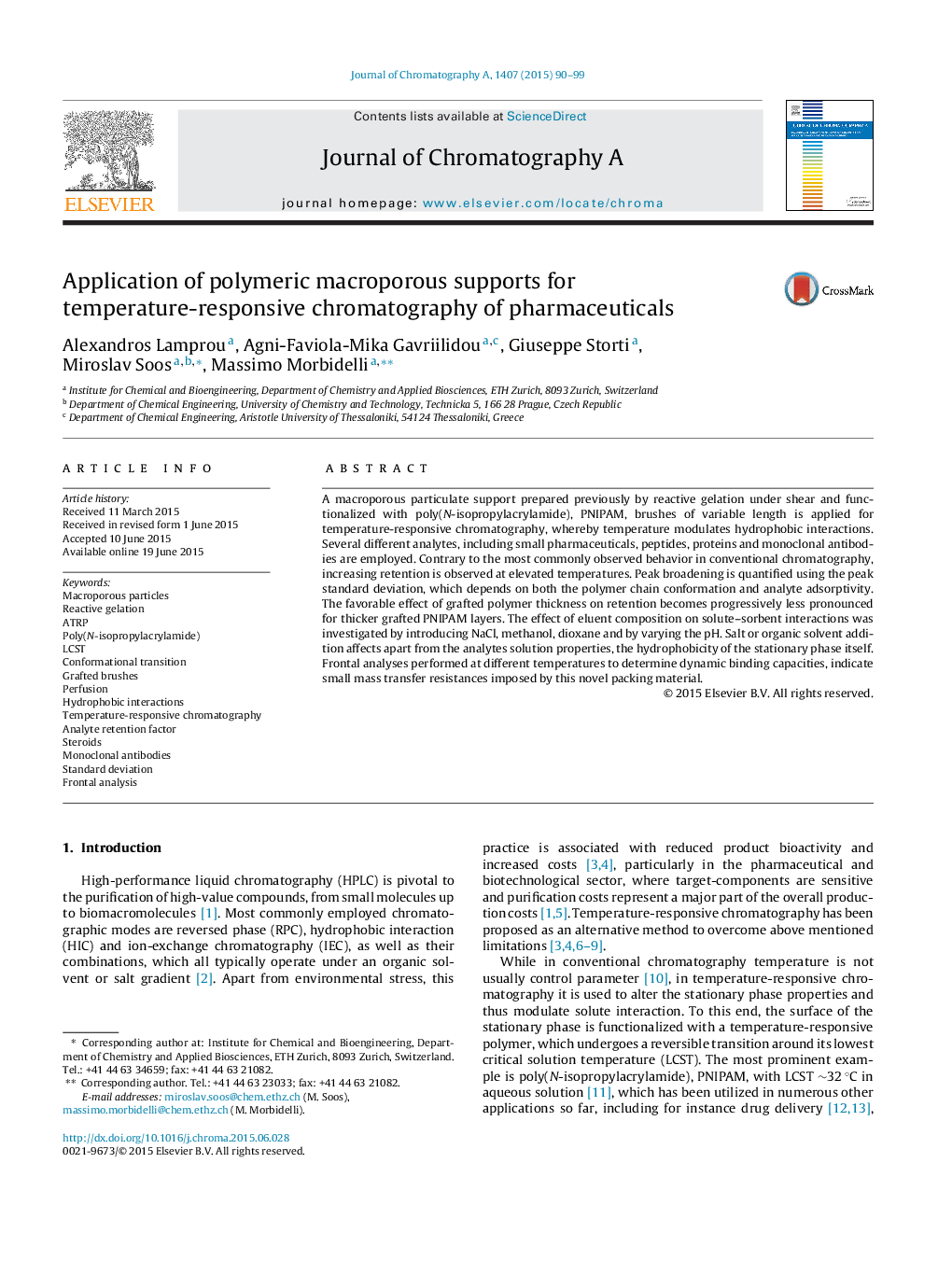| کد مقاله | کد نشریه | سال انتشار | مقاله انگلیسی | نسخه تمام متن |
|---|---|---|---|---|
| 1199109 | 1493519 | 2015 | 10 صفحه PDF | دانلود رایگان |
• Macro-porous particles exhibit high particle mass transfer.
• PNIPAM functionalization allowing modulates hydrophobic interactions.
• Frontal analysis demonstrates separation of analytes using temperature-responsive chromatography.
A macroporous particulate support prepared previously by reactive gelation under shear and functionalized with poly(N-isopropylacrylamide), PNIPAM, brushes of variable length is applied for temperature-responsive chromatography, whereby temperature modulates hydrophobic interactions. Several different analytes, including small pharmaceuticals, peptides, proteins and monoclonal antibodies are employed. Contrary to the most commonly observed behavior in conventional chromatography, increasing retention is observed at elevated temperatures. Peak broadening is quantified using the peak standard deviation, which depends on both the polymer chain conformation and analyte adsorptivity. The favorable effect of grafted polymer thickness on retention becomes progressively less pronounced for thicker grafted PNIPAM layers. The effect of eluent composition on solute–sorbent interactions was investigated by introducing NaCl, methanol, dioxane and by varying the pH. Salt or organic solvent addition affects apart from the analytes solution properties, the hydrophobicity of the stationary phase itself. Frontal analyses performed at different temperatures to determine dynamic binding capacities, indicate small mass transfer resistances imposed by this novel packing material.
Journal: Journal of Chromatography A - Volume 1407, 14 August 2015, Pages 90–99
